Interests vs. values or is it late Libya to be condemned
Adelina Marini, February 26, 2011
 Probably it is not politically easy when you are involved unpleasantly with a dictator, to quickly react and tell him he is a bad boy. May be it is not easy but gets facilitated when the oil price soars sharply, the refugee flows become floods and chaos threatens to destroy the already fragile peace in the southeast Mediterranean. Probably, the assessment of these factors is the reason why a large part of the world political elite was silent until recently, while colonel Muammar Gaddafi was doing his bloodshed against his own people. Or if not being entirely silent, at least uttering with a half opened mouth a word of condemnation of the situation of the oil-rich country.
Probably it is not politically easy when you are involved unpleasantly with a dictator, to quickly react and tell him he is a bad boy. May be it is not easy but gets facilitated when the oil price soars sharply, the refugee flows become floods and chaos threatens to destroy the already fragile peace in the southeast Mediterranean. Probably, the assessment of these factors is the reason why a large part of the world political elite was silent until recently, while colonel Muammar Gaddafi was doing his bloodshed against his own people. Or if not being entirely silent, at least uttering with a half opened mouth a word of condemnation of the situation of the oil-rich country.
In fact, quickly and unequivocally reacted only the European Union, but there things are easy to explain because, practically, the institutions of the Union reacted, not the member states. Of those who reacted first and even made a tour in the region was the British prime minister, David Cameron. Bulgarian Foreign Minister also was constantly condemning the situation in Libya. The big powers, though, were silent for a long time.
Cameron impressed a lot not only with his actions but also with his powerful speech in Kuwait on February 22nd. He arrived in the country from Egypt on the occasion of the 20th anniversary of Iraq's incursion in Kuwait. The main message of the British prime minister, of course was to attest the historic links between Britain and the countries on the Arab peninsula (the United Kingdom is a former colonial power in the region), by focusing on the change of the geopolitical landscape. Premier's main concern appeared to be the Middle East peace process. "In responding 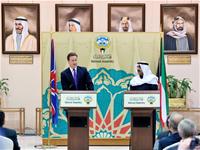 to the most recent developments in the Middle East, there is a serious risk that governments will draw the wrong conclusion and pull back. I draw completely the opposite conclusion. Far from pulling back we should push forward".
to the most recent developments in the Middle East, there is a serious risk that governments will draw the wrong conclusion and pull back. I draw completely the opposite conclusion. Far from pulling back we should push forward".
David Cameron went so far in his speech at Kuwait's National Assembly that he even surprised. "For decades, some have argued that stability required highly controlling regimes, and that reform and openness would put that stability at risk. So, the argument went, countries like Britain faced a choice between our interests and our values. And to be honest, we should acknowledge that sometimes we have made such calculations in the past. But I say that is a false choice".
According to the British premier, wherever and whenever there is violence against peaceful protesters there should be no heistation to condemn it. Alas, not all the leaders of strategically important nations around the world shared his opinion.
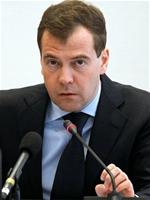 Russian President Dmitry Medvedev, for example, expressed (also on February 22nd) a position, closer to that of colonel Gaddafi. During a security meeting in Vladikavkaz Medvedev predicted decades of instability in the Arab world if the protesters, whom he, according to the Associated Press, called fanatics, came to power. The Russian head of state did not name any country in particular but referred to the crisis in the Middle East and North Africa. "These states are difficult, and it is quite probable that hard times are ahead, including the arrival at power of fanatics. This will mean fires for decades and the spread of extremism", Medvedev said, quoted by the news agency.
Russian President Dmitry Medvedev, for example, expressed (also on February 22nd) a position, closer to that of colonel Gaddafi. During a security meeting in Vladikavkaz Medvedev predicted decades of instability in the Arab world if the protesters, whom he, according to the Associated Press, called fanatics, came to power. The Russian head of state did not name any country in particular but referred to the crisis in the Middle East and North Africa. "These states are difficult, and it is quite probable that hard times are ahead, including the arrival at power of fanatics. This will mean fires for decades and the spread of extremism", Medvedev said, quoted by the news agency.
Moreover, Mr Medvedev directly made a threat by saying that any attempts for a repeat of the unrest in Russia would be quashed. "They have prepared such a scenario for us before, and now more than ever they will try and realize it. In any case, this scenario won't succeed", the Russian president said without specifying who exactly was behind such a scenario.
This statement of his is in a sharp contradiction to the joint declaration of EU High Representative for Foreign Affairs baroness Ashton and Russian Foreign Minister Sergei Lavrov in Brussels only two days later. In it the 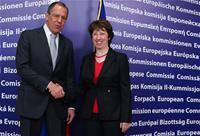 positions set forth by Brussels and Moscow in recent days are reaffirmed and support is expressed too for the statements of the Arab League and the UN Security Council from February 22nd.
positions set forth by Brussels and Moscow in recent days are reaffirmed and support is expressed too for the statements of the Arab League and the UN Security Council from February 22nd.
"We condemn and consider unacceptable the use of military force to break up peaceful demonstrations, as well as any other manifestations of violence and insist on an immediate cessation of such actions. In particular, we strongly condemn the violence and the use of force against civilians in Libya, which has resulted in the deaths of hundreds of people". Further both underscore that the massive protests exposed a broad range of problems that had accumulated within societies and that these problems needed to be addressed by the peoples of relevant countries through national dialogue with the participation of all sides and society. Moreover, Catherine Ashton and Sergei Lavrov support the Arab peoples in their aspirations for fairer and prosperous life. "... the European Union and Russia stand ready to provide economic and other assistance to interested countries at their request".
They, just like the British prime minister, point out with concern the necessity the Middle East peace process to be protected and the events in the region not to be used as a pretext for preserving the impasse.
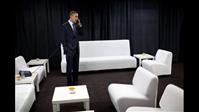 The American President Barack Obama reacted last, on February 23rd. In a special statement he announced that for him a number one priority was securing the safety of American citizens. Mr Obama also said that he asked his administration to prepare the full range of options to respond to the crisis and that these would be coordinated with United States' partners and allies. For the purpose, Under Secretary of State for Political Affairs Bill Burns was asked to make a tour in Europe and the region to intensify the consultations on Libya. The American head of state said one more thing, which deserves mentioning, namely that neither the United States nor any other foreign country had anything to do with the unrest.
The American President Barack Obama reacted last, on February 23rd. In a special statement he announced that for him a number one priority was securing the safety of American citizens. Mr Obama also said that he asked his administration to prepare the full range of options to respond to the crisis and that these would be coordinated with United States' partners and allies. For the purpose, Under Secretary of State for Political Affairs Bill Burns was asked to make a tour in Europe and the region to intensify the consultations on Libya. The American head of state said one more thing, which deserves mentioning, namely that neither the United States nor any other foreign country had anything to do with the unrest.
In this very same time the choir was joined by the French President, Nikolas Sarkozy, who called on the European Union to impose sanctions on Libya. Sarkozy, in the very beginning of his term as president, took a leading part in rescuing the Bulgarian medics in Libya indicted with a deliberate contamination of nearly 400 Libyan children with AIDS. Then it became clear that during the negotiations for the release of the Bulgarian citizens, Mr Sarkozy managed to agree several lucrative weapons deals with colonel Gaddafi. According to the Associated Press news agency, Sarkozy even said that he considered the possibility of suspending all economic, trade and financial relations with Libya.
And on February 25th, the Secretary General of NATO, Anders Fogh Rasmussen, also joined the equation. Several days ago his supporters in Facebook 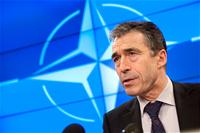 asked him whether NATO would finally intervene in Libya. In a statement from Budapest, where he was on a visit, Mr Rasmussen said that he was calling an urgent meeting of the Alliance on the situation in Libya. "It’s a crisis in our immediate neighbourhood. It affects the lives and safety of Libyan civilians and those of thousands of citizens from NATO member states. Many countries are now evacuating their citizens from Libya – clearly, a massive challenges". From Rasmussen's statement it becomes clear that the urgent meeting was called in the afternoon.
asked him whether NATO would finally intervene in Libya. In a statement from Budapest, where he was on a visit, Mr Rasmussen said that he was calling an urgent meeting of the Alliance on the situation in Libya. "It’s a crisis in our immediate neighbourhood. It affects the lives and safety of Libyan civilians and those of thousands of citizens from NATO member states. Many countries are now evacuating their citizens from Libya – clearly, a massive challenges". From Rasmussen's statement it becomes clear that the urgent meeting was called in the afternoon.
All this is developing in an environment of quickly soaring oil prices, as well as of the worries of several EU member states from fuel shortages. In the meantime, all countries are synchronising their efforts on the evacuation of their citizens from Libya. In spite of the sharp deterioration of the situation in the country, its leader Muammar Gaddafi called his supporters to arm themselves and did not show any indication of weakening.
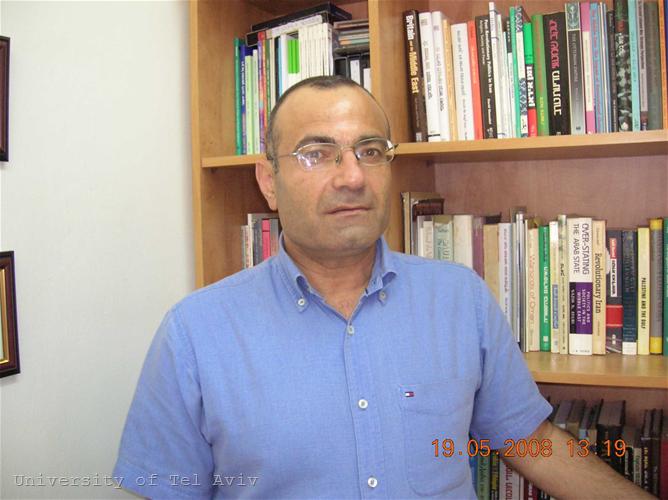 | © University of Tel Aviv
| © University of Tel Aviv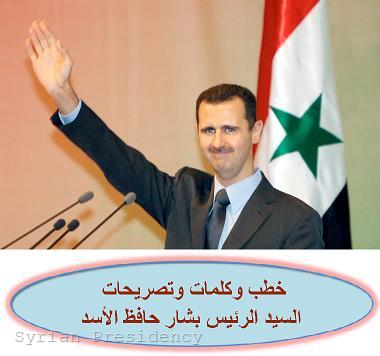 | © Syrian Presidency
| © Syrian Presidency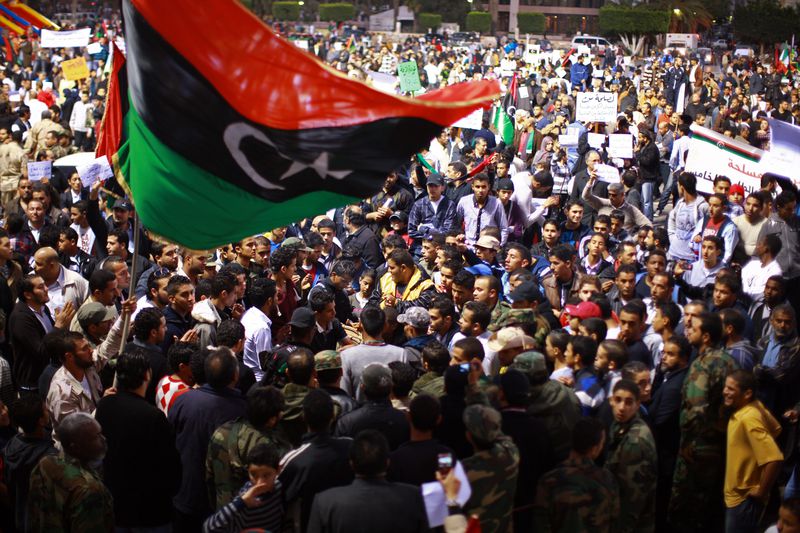 | © UN
| © UN